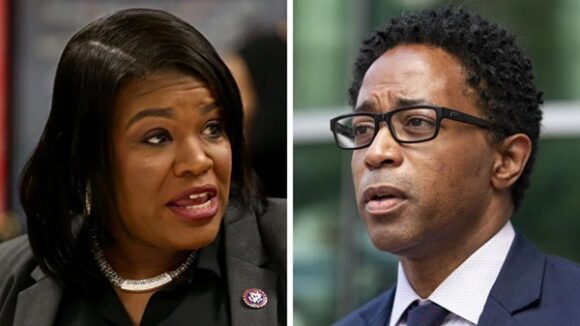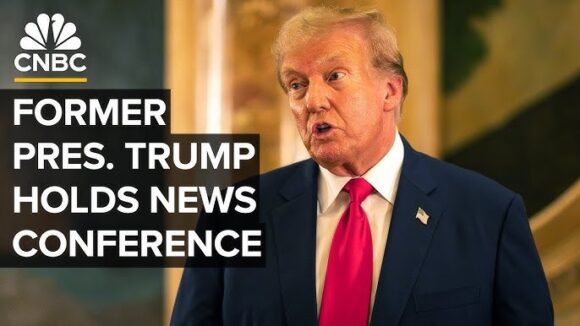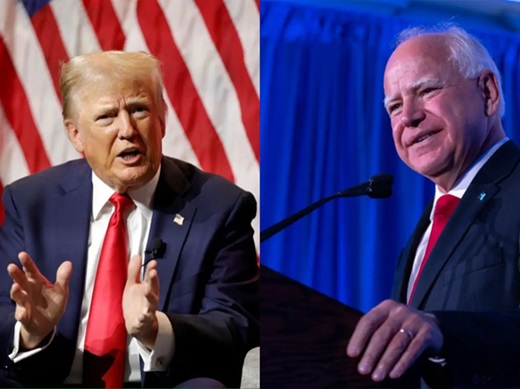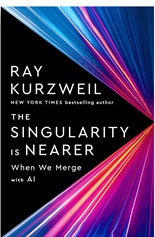 Cori Bush and Wesley Bell. Courtesy of the St. Louis Post-Dispatch.
Cori Bush and Wesley Bell. Courtesy of the St. Louis Post-Dispatch.
Dear Commons Community,
Representative Cori Bush (D-Mo.) lost her Democratic primary yesterday, shrinking the ranks of the House’s left-wing “Squad” and delivering another major victory to the pro-Israel and business-friendly groups that backed her challenger.
Wesley Bell, the St. Louis County prosecutor, defeated Bush. Since Missouri’s 1st Congressional District, which includes all of St. Louis and many of its northern and western suburbs, is overwhelmingly Democratic, Bell is all but assured of a seat in Congress come November.
Bell’s victory over Bush marks the second “Squad” member in recent months to fall to a challenger heavily funded by pro-Israel groups. Rep. Jamaal Bowman (D-N.Y.), who, like Bush, ousted an incumbent in 2020, lost his race to Westchester County Executive George Latimer this past June.
As reported by The Huffington Post.
“This race is about the future of our democracy and the soul of our Democratic Party, frankly,” Usamah Andrabi, a spokesperson for Justice Democrats, told HuffPost on Monday. “This is a question about whether we want to let a handful of Republican mega-donors dictate the outcome of Democratic primaries, or do we want to move forward to elect more nurses and everyday people to represent the community’s best interests.”
Bush, an ordained pastor and registered nurse, indeed faced a massive fundraising deficit. As Andrabi noted, Bell had the support of some local Republican donors — and many national megadonors from both parties, through the American Israel Public Affairs Committee.
Super PACs supporting Bell outspent those supporting Bush by a more than 3-to-1 margin. Spending by pro-Bell groups included about $8.6 million from AIPAC’s United Democracy Project, $1.5 million from LinkedIn co-founder Reid Hoffman’s Mainstream Democrats PAC, $1.4 million from the crypto-industry-backed FairShake PAC, and nearly $500,000 from the Democratic Majority for Israel PAC.
Bush made national waves with her July 2021 sit-in on the U.S. Capitol steps to draw attention to the expiration of the federal government’s COVID-19-era eviction moratorium. Her action got results; President Joe Biden responded by extending the policy, though the Supreme Court stopped it a few weeks later.
Later that year, in a bid to shore up support for abortion rights, Bush spoke on national television — and in a House hearing — about her experience getting an abortion after being raped at age 17.
Bush’s allies — and she retains the support of many local elected officials — see her as an authentic tribune of the Black Lives Matter movement, which was born in Ferguson, Missouri, following the police killing of Michael Brown in 2014.
Unlike many other Democrats in Washington, Bush continues to embrace calls to “defund the police.”
Bell, who also got his political start during the Ferguson protests and unseated a more conservative incumbent prosecutor in 2018, has, by contrast, disappointed many of his former fellow activists. They fault him for declining to prosecute Darren Wilson, the police officer who killed Brown, and for not more rapidly reducing the county’s jail and prison populations, even as he points to the creation of a conviction review unit and the expansion of drug diversion programs.
“Everyone keeps saying they both come from the movement,” said St. Louis Alderman Rasheen Aldridge, a Ferguson alum and Bush supporter. “I would say there’s somebody like Cori Bush, who was a front-liner, who was actually in the movement, and there’s somebody like Bell who was using the movement as a stepping stone for another seat.”
But Bush also had weaknesses that gave her ideological adversaries an opening.
DMFI PAC’s polling found Bush leading Bell by 16 percentage points in January, but still only getting 45% of the vote. By late July, the group had Bell leading Bush by six percentage points ― a close approximation of the final outcome.
“There was clear evidence in the polling, she was very vulnerable,” said Mark Mellman, president of DMFI, and a veteran campaign pollster.
Bush’s vulnerabilities included her vote against President Joe Biden’s bipartisan infrastructure law. While she and the other five progressives who voted against it say they meant to pressure Biden to pass broader social and climate legislation, attack ads papered over those nuances to paint Bush as a party turncoat.
Perhaps trying to offset the impact of this vote, Bush erected signs claiming she had “delivered over $2 billion” to the district. But with an assist from DMFI, local TV station KDSK reported in June that Bush’s team had counted virtually all federal grant and American Rescue Plan Act money that had come into the district during her time in Congress, the vast majority of which she had little direct role in allocating. Bush’s staff later took down at least one of the signs.
In addition, Bush faces a Department of Justice investigation for improperly spending more than $750,000 in campaign funds on private security services from a firm run by a man who was her romantic partner and is now her husband.
Federal campaign finance law allows candidates to hire family members as vendors as long as they are providing an authentic service at a market rate. Bush, who says she needs private security due to the death threats she receives, insists that the business agreement is above board. The House Ethics Committee also recommended no charges against her in October.
But in leaked audio of a January meeting with some of her aides in which Bush pleaded for them to remain with her, she acknowledged the arrangement might look “messed up” to some people.
Ironically, former Rep. William “Lacy” Clay, who Bush unseated in 2020, elicited scrutiny for a similar practice, albeit without the justification of personal safety. His campaign had shelled out so much money to his sister’s law firm for legal expenses, Bush was able to outspend him on television in the final two weeks of the race.
Finally, Bush has been among the most outspoken critics of Israel in Congress, particularly after Israel invaded Gaza in response to Hamas’ terror attack on Oct. 7. She was not only an early advocate for a ceasefire, but has also accused Israel of genocide ― a charge that remains highly disputed. And in an interview with The New York Times out on Monday, Bush expressed ambivalence about describing Hamas as a terrorist group, though her campaign later walked it back.
“Would they qualify to me as a terrorist organization? Yes,” Bush told the Times. “But do I know that? Absolutely not.”
Bush’s stances cost her the support of Susan Talve, a progressive St. Louis rabbi who leads the only synagogue in Bush’s district. But they also unsettled some other allies who see her national profile as a distraction from the needs of the high-poverty, majority Black district.
Darryl Gray, a local pastor and social justice advocate who ran Bush’s failed Senate campaign in 2016 and has voted for her ever since, is a prominent former ally now backing Bell.
“As an advocate on national issues, she gets an A+. She has been vocal and present and 10 toes in around issues that all of us ought to be concerned about ― from Palestine to housing,” Gray said Monday. “What St. Louis needs right now in their congressperson is not so much a vocal advocate, but a facilitator, a leader locally that can bring other elected officials and community partners to a table to address and hopefully solve local issues.”
Jeff Smith, a former state senator and executive director of the Missouri Workforce Housing Association, is another St. Louis resident who voted for Bush in 2020 and is now voting for Bell.
“She’s leaned into some of her more controversial positions instead of modulating her rhetoric,” Smith said. “A lot of people feel like she’s not been a representative for everyone, but has rather been narrowly focused on the people who constituted her base in her initial primary.”
“Public safety’s the biggest challenge that the region faces,” he added. “People have different positions for how to address it, but I would say the trajectory of the ‘defund the police’ message is similar to what it is in other places: It peaked in June 2020.”
Good luck to Rev. Bell!
Tony












